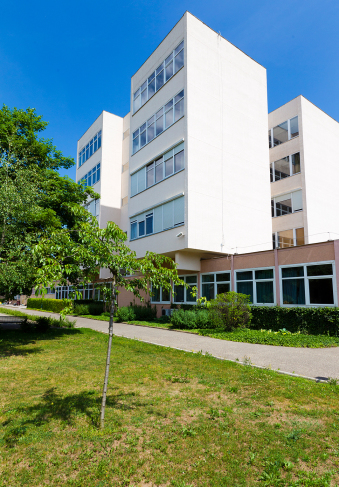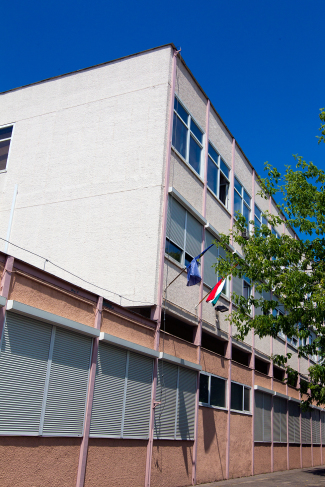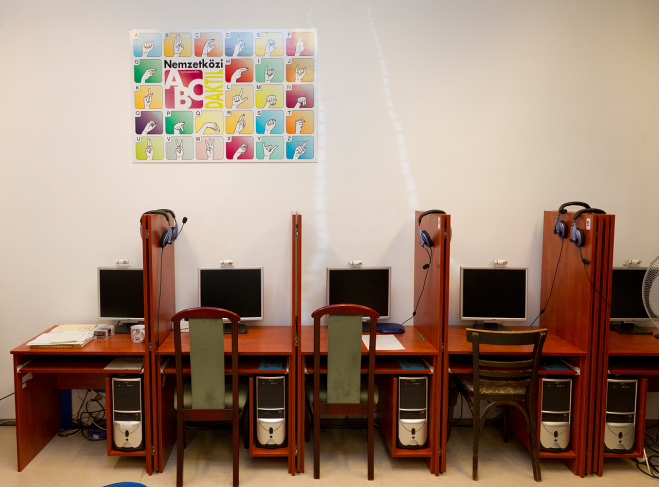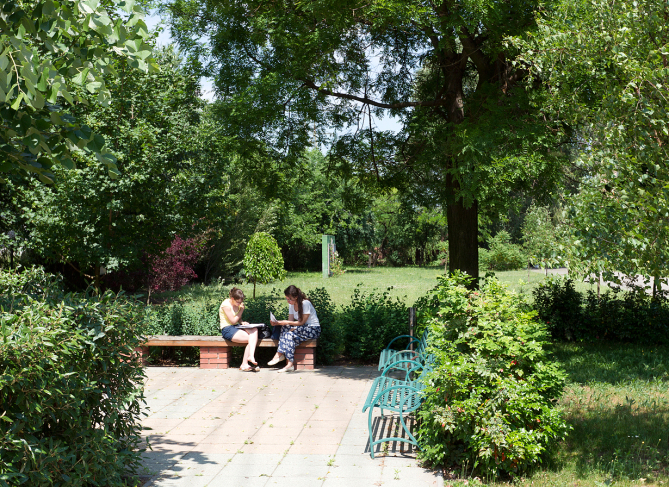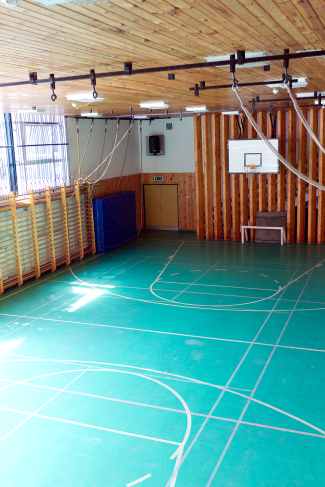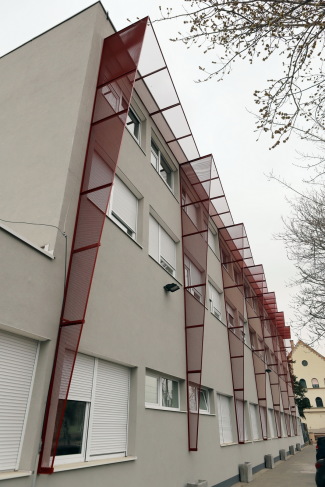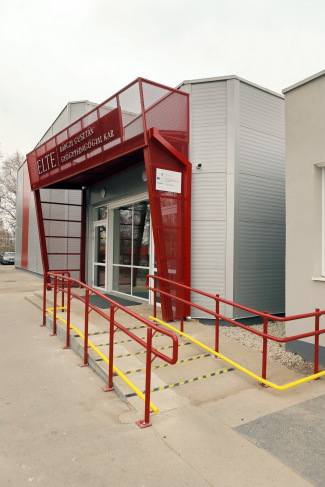Orientation and Mobility Instructor for Individuals with Blindness or Visual Impairment (part-time)
Orientation and Mobility Instructor for Individuals with Blindness or Visual Impairment (part-time)
Orientation and Mobility Instructor for Individuals with Blindness or Visual Impairment
Postgraduate programme part-time
Specialist postgraduate
english
2 semesters (1 year)
60
The aim of the programme is to prepare professionals to teach indoor and outdoor orientation and mobility skills to adolescents and adults with blindness or visual impairment.
This programme provides students with a complex knowledge of the aspects of orientation and mobility instruction. Study areas include the causes and incidence of visual impairment, the assessment and development of functional vision, the tools of optical rehabilitation, and understanding the psychological effects of visual impairment (whether congenital or acquired later in life) and the recognition of crises. Basic knowledge of the ergonomics of equal access is also essential. As a facilitator, the professional must be aware of the role of the specialist, the social processes affecting individuals with blindness or visual impairment, and the legal environment, including the principles and regulations prescribed in ratified international documents.
This program is recommended to applicants who have at least two years of work or other personal experience with individuals with blindness or visual impairment
Knowledge:
- Familiarity with the fundamental theoretical concepts related to visual impairment (European prevalence, WHO definitions, major eye diseases, visual functions, functional vision assessment, and optics).
- An understanding of the movement and orientation of people with blindness or visual impairment, including individuals with multiple disabilities and visual impairment, in space.
- An ability to assess client’s prior knowledge, physical status (e.g. endurance, balance), mental performance (e.g. ability to memorise routes), and psychological status (e.g. whether client is in a crisis due to visual impairment).
- Is aware of the methods of teaching safe and independent indoor and outdoor orientation and mobility with the long white cane to blind and visually impaired persons of various ages, with a focus on adolescents and adults).
- Is familiar with additional assistive devices that complement long white cane use (e.g., GPS applications, guide dogs) and is able to evaluate whether any of these are beneficial for the client.
- Effectively adapts knowledge to the client’s condition, individual needs, and abilities.
- Understands the benefits and rules of teamwork and is aware of personal competencies and competence limits.
Skills:
- Can assess the client’s abilities and prior knowledge regarding orientation and mobility.
- Adapts the pace of instruction and teaching strategies to the client’s visual performance, individual needs, and condition.
- Tailors communication and the method of knowledge transfer to the client’s prior knowledge, condition, and individual needs.
- Develops an “individual long-term care and life plan” in cooperation with the client, their family, and the supporting team.
Attitude:
- Is open and accepting of the client’s (and their family’s) individual needs, abilities, and condition.
- Flexibly adjusts the teaching process according to the client’s individual needs, abilities, and condition.
- Maintains a positive attitude towards the client.
- Sets realistic and high expectations for blind and visually impaired clients.
- Is solution-oriented and creative throughout the entire teaching process.
Autonomy and Responsibility:
- Guarantees the client’s safety during instruction while promoting their independence and self-efficacy.
- Works independently while making decisions in cooperation with the client and the supporting team (including family members if applicable).
- Takes responsibility for thoroughly understanding the process of teaching orientation and mobility, mastering its methods and techniques to ensure that persons with blindness or visual impairment are later taught independently, professionally, and safely.
- Understands and adheres to personal competency boundaries and is open to professional collaboration with representatives of other disciplines.
This programme provides students with a complex knowledge of the aspects of orientation and mobility instruction. Study areas include the causes and incidence of visual impairment, the assessment and development of functional vision, the tools of optical rehabilitation, and understanding the psychological effects of visual impairment (whether congenital or acquired later in life) and the recognition of crises. Basic knowledge of the ergonomics of equal access is also essential. As a facilitator, the professional must be aware of the role of the specialist, the social processes affecting individuals with blindness or visual impairment, and the legal environment, including the principles and regulations prescribed in ratified international documents.
The structure is available on this link.
Schedule:Autumn semester:
Online lessons during September and November (8 X 5 lessons on Friday afternoon or Saturday morning),
On-site lessons in October from Friday to next Saturday (no lessons on Saturday afternoon and Sunday).
Spring semester:
Online lessons during February and April (5 X 5 lessons on Friday afternoon or Saturday morning),
On-site lessons in March from Friday to next Saturday (no lessons on Saturday afternoon and Sunday).
Upon completion of the programme, the orientation and mobility specialist will gain a complex knowledge of teaching their teenage or adult clients with blindness or visual impairment to navigate their environment in a safe and independent manner.
orientation and mobility specialists may work in both special schools and in mainstream education as itinerant experts, and can work in rehabilitation settings with both teenage and adult clients
EUR 3700
EUR 3700
EUR 50
EUR 50
Entrance exam fee: EUR 100
Entrance exam fee: EUR 100
EUR 3700
EUR 50
Entrance exam fee: EUR 100
01, Sep, 2025
30, Jun, 2025
No
Entry requirements
- Minimum bachelor’s degree (BA/BSc) in any field of study
- At least two years of work or other personal experience with individuals with blindness or visual impairment
Language requirements:
Minimum level of language proficiency (oral) (A1-C2): B2
Minimum level of language proficiency (written) (A1-C2): B2
Motivation letter
The applicant is required to submit a motivation letter (2000 - 3500 characters)
The cover letter is in English, and includes the following information:
- candidate’s experience working with individuals with BVI,
- candidate’s personal and professional motivation for becoming an orientation and mobility expert.
Cover letters are expected to be written in respectful, person-first language (ie. individuals with blindness, not blind individuals).
| Document | Comment |
| Online application form | |
| Bachelor-level degree | |
| Transcript of records | |
| CV | |
| Motivation letter | The applicant is required to submit a motivation letter (2000 - 3500 characters) The cover letter is tobe written in English |
| Proof of application fee transfer | |
| Language certificate |
The application starts in the online application system. Students need to register in the system, fill in the online application form, upload the required documents and follow the instructions during the application process. […]
At the same time as submitting the application documents, please pay the application fee (EUR 50) to the account number by June 30, 2025. Your application will only be valid if you submit all the required documents listed above and pay the application fee. The online (Teams or Zoom) interview will take place by July 23, 2025, and you will be notified of the exact date of the interview by email by July 10. Please pay the admission fee (EUR 100) by July 16, 2025 to the account number.
The online oral interview will take place only upon receipt of the admission fee. You will be notified of your admission result by email by July 30, 2025.
The application and the entrance exam fee should be transferred to the following account:
- Name of Bank: Magyar Államkincstár (Hungarian State Treasury)
- Account Holder: Eötvös Loránd Tudományegyetem
- Account No.: 10032000-01426201-00000000
- SWIFT Code: HUSTHUHB
- IBAN Number: HU03 1003 2000 0142 6201 0000 0000
On the transfer order please note the following: “KN1745/09, R940535000, your full name”
Entrance examination and selection process:
The applications are examined by the Admission Board [30/06/2025] and applicants are notified of the outcome of the selection in the online application system until [25/07/2025]. Admission letters are sent out in the online application system until 30/07/2025].
Type of entrance examination: Oral admission exam
Place of entrance examination: admission exam will be held on MS Teams or Zoom
Candidates are required to sit an online, oral admission exam.
Aspects of the evaluation of the entrance exam:
- Candidate shows sufficient experience in working with individuals with BVI,
- Candidate shows full respect, openness and acceptance towards people with BVI, and towards human diversity,
- Candidate expresses full awareness of why orientation and mobility are essential skills of self-sufficient and independent persons with BVI,
- Candidate clearly explains why he/she seeks to become an instructor of orientation and mobility.
- Candidate is able to express the above issues in English and is familiar with the professional vocabulary of visual impairment and disability
- Professional characteristics of the programme, areas of study leading to the qualification, credit units the programme is comprised of
Further details of selection and evaluation:
The ranking is based on a total evaluation of the academic excellence (based on the submitted documents) and the results of the entrance exam.Associate professor
Andrea Rada
Head of Student Administration
E-mail: admission@barczi.elte.hu
Postal address: 1097 Budapest, Ecseri út 3. Hungary
Bárczi Gusztáv Faculty of Special Needs Education
Bárczi Gusztáv Faculty of Special Needs Education
The Special Needs Education BA at Eötvös Loránd University (ELTE) in Budapest, Hungary is a practice-oriented training program. Students learn how to help children, young people and adults with disabilities and impairments improve their skills and functions and how to assist them in learning, life management, rehabilitation, environmental adjustment and social integration. Students from the third semester can choose one or two specializations (hearing impairment, visual impairment, physical disabilities, and intellectual disabilities). The program includes various field visits. In the last semester students participate in a professional practice program at partner institutions related to their chosen specialisations.
The Special Needs Education BA at Eötvös Loránd University (ELTE) in Budapest, Hungary is a practice-oriented training program. Students learn how to help children, young people and adults with disabilities and impairments improve their skills and functions and how to assist them in learning, life management, rehabilitation, environmental adjustment and social integration. Students from the third semester can choose one or two specializations (hearing impairment, visual impairment, physical disabilities, and intellectual disabilities). The program includes various field visits. In the last semester students participate in a professional practice program at partner institutions related to their chosen specialisations.
0
/
0















0
/
0

